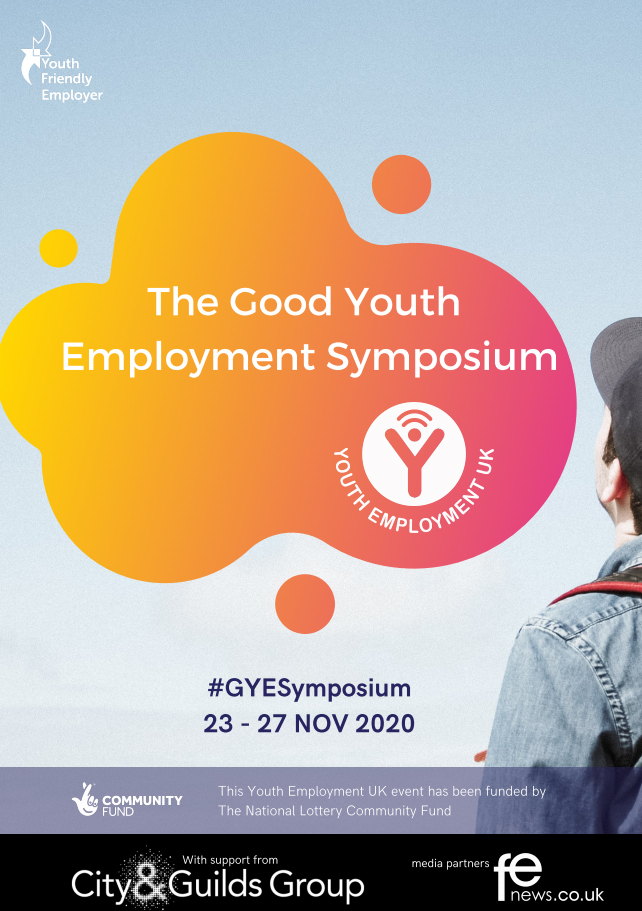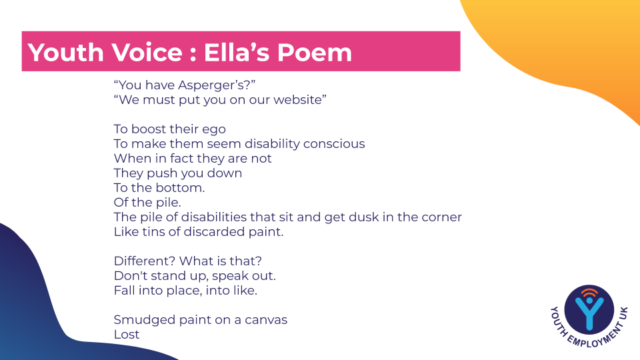This Disability & Creating Opportunities session explores the barriers young disabled people are facing, what employers are doing and what we need more of.
Youth Ambassador Chair, Harvey Morton welcomed our attendees to our Disability & Creating Opportunities session today, the second session of our week long Symposium series. This session was supported by Rabia Lemahieu, Disability and Skills Manager at Disability Rights UK, Kim Forsythe, This-Ability Project Manager, Humber LP, Susie Pearson-Giddings, Head of early careers, St James’ Place and Youth Ambassadors Arron and Ella.
This session aimed to give a better understanding of the issues being faced by young people with disabilities accessing the labour market as well as sharing best practice to support more young people with disabilities in to work.
Watch the full session below.
The challenge
Disabled Young People are facing a real challenge, especially since the pandemic, everything has been impacted form education, work and independence.
Key facts:
- 8% of children are disabled
- 19% of working age adults (16-64) are disabled -7.7million
- In 2019, there were 53.2% disabled people employed compared with 81.8% for non-disabled people
- In 2018/19, 11.8% (46,000) of apprenticeship starts were learners with learning difficulties and/or disabilities
- The proportion of disabled people with no qualifications is nearly three times that of non-disabled people
- Disabled people earn less
- On average life costs £500 a month more if disabled
- Young disabled people aged 16–24 are more likely than other groups to end up not in employment, education or training (NEET)
The rate of young people disabled people living in poverty is 6% higher than for non disabled young people. Young Disabled people aged 16 – 24 were more likely to end up NEET, become homeless, have mental health issues and are overrepresented in the criminal justice system.
In addition, the 2020 Youth Voice Census tells us that young people with additional needs are less likely to get employability support and are at least 10% less confident that they will be able to secure meaningful employment when compared to their non disabled peers.
We will be making more content available throughout the week.
There is still time to sign up to sessions here.
Our free booklet is still available to download:









